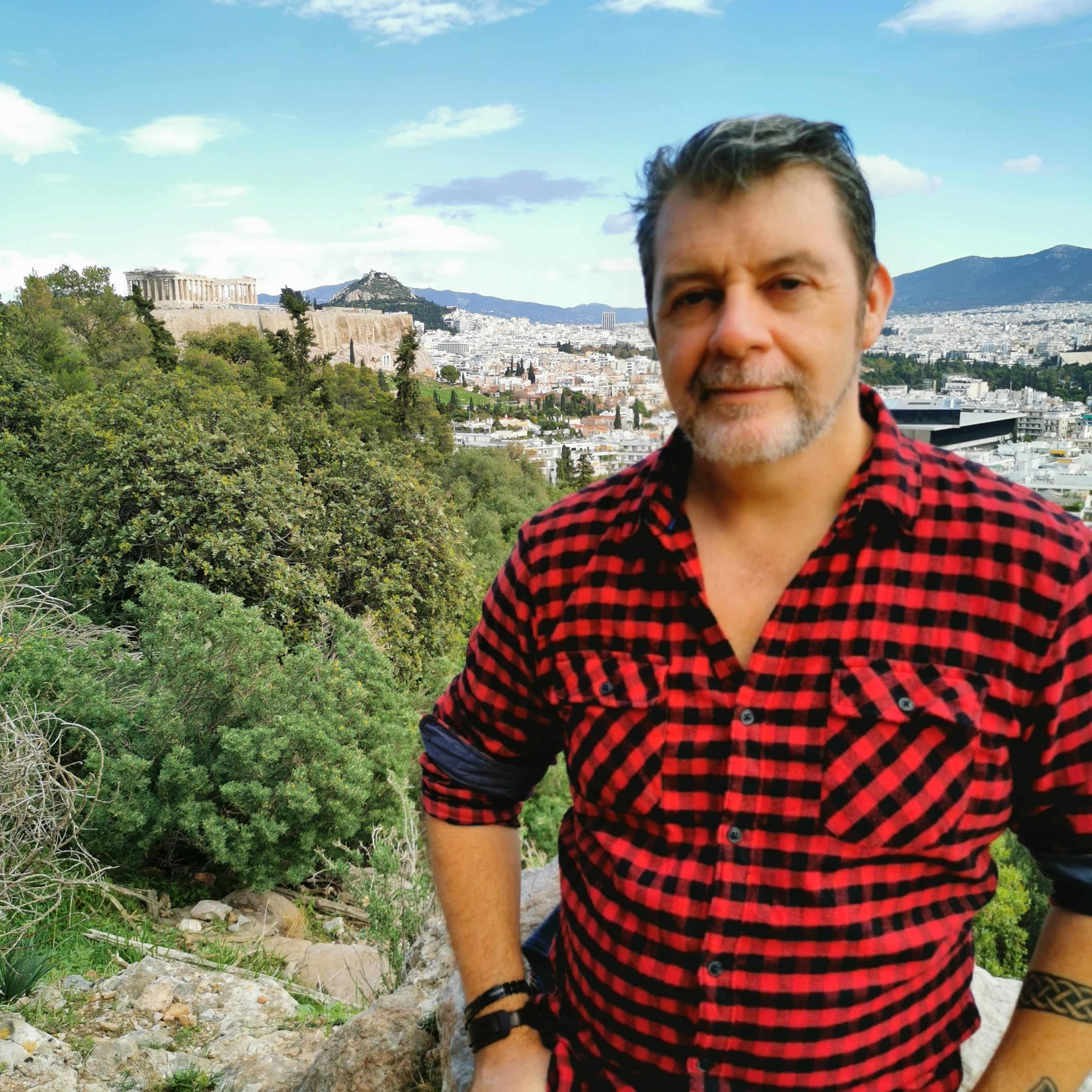

Stoicism: Philosophy as a Way of Life Podcast
Donald J. Robertson
Donald Robertson, the author of "How to Think Like a Roman Emperor", and a cognitive-behavioral therapist, talks about how to apply Stoicism in the modern world, discussing philosophy, psychology and self-improvement with guests from all walks of life. Available on Google and Apple podcasts. donaldrobertson.substack.com
Episodes
Mentioned books

17 snips
Mar 19, 2025 • 34min
Watch us chat about the philosophy and psychology of anger
Anya Leonard, the founder of Classical Wisdom, shares her unique insights into the philosophy and psychology of anger. She discusses its historical significance and how it’s often overshadowed by anxiety and depression. Anya highlights the complexity of anger, exploring its cultural dimensions and its role in social media. Drawing from ancient philosophers like Seneca and Aristotle, she advocates cognitive strategies for managing anger. The conversation emphasizes the importance of understanding and channeling anger for personal growth and emotional intelligence.

10 snips
Mar 6, 2025 • 1h 2min
REBT, Single Session Therapy, and Anger
Windy Dryden, Emeritus Professor of Psychotherapeutic Studies at Goldsmiths, University of London, is a leading expert on Rational Emotive Behavior Therapy. He shares insights on the evolution of psychotherapy since the 1970s and the significance of emotional flexibility in therapy. Dryden explains the unique aspects of REBT and the ABC model, along with the benefits of single-session therapy. He also delves into managing anger, distinguishing between healthy and unhealthy expressions, and offers practical advice for personal growth.

Feb 27, 2025 • 20min
Meditation: The View from Above
Dive into a transformative meditative experience that enhances mindfulness and self-awareness. Listeners embark on a journey of breath awareness and visualization, cultivating a broader perspective on life. The session encourages reflection on personal connections to the universe, guiding participants to embrace a deeper understanding of themselves. It's an enlightening exploration of how meditation can lead to profound insights and a more enriched life.

Feb 20, 2025 • 1h 1min
Stoicism and The Moment that Defines your Life
Join Chuck Garcia, founder of Climb Leadership International and author of The Moment That Defines Your Life, as he shares insights on Stoicism and emotional intelligence. He discusses the transformative power of mortality on personal philosophy and leadership styles influenced by Marcus Aurelius. Listeners will discover how Stoicism can mitigate anger and enhance decision-making in high-pressure situations. Chuck also connects his experiences as a mountaineer to Stoic principles, advocating for a balanced approach to emotional resilience and personal growth.

10 snips
Jan 23, 2025 • 1h 22min
Stoicism, Coaching, and Leadership
Erick Cloward, an executive coach from Amsterdam and former tech CTO, discusses his journey into Stoicism and leadership coaching. He dispels misconceptions about Stoicism, emphasizing its emotional depth and relevance today. Erick reveals insights from his upcoming book, "Stoicism 101," focusing on how Stoic principles like the dichotomy of control can strengthen leadership and resilience. He highlights the importance of emotional regulation, particularly regarding anger, and shares how understanding historical figures enriches one's Stoic practice.

Jan 16, 2025 • 1h 13min
Stoicism and Life Coaching
Benny Voncken, a life coach and co-founder of Via Stoica, shares his transformative journey with Stoic philosophy, which helped him conquer anxiety and anger. He discusses how Stoicism offers practical strategies for emotional management, emphasizing the value of personalized coaching over traditional self-help. Topics include mastering emotions, the paradox of anger, and the importance of self-awareness in personal growth. Voncken encourages listeners to explore Stoicism's applications in modern life as a means to enhance resilience and emotional clarity.

11 snips
Nov 28, 2024 • 1h 27min
How can we Measure Wisdom?
Join Igor Grossmann, a psychology professor and wisdom expert from the University of Waterloo, as he unpacks the essence of wisdom. He discusses whether wisdom is static or dynamic and its interplay with abstract and concrete thinking. Intellectual humility, open-mindedness, and distanced reflection emerge as key elements in fostering wise reasoning. Grossmann also explores how understanding wisdom can aid in coping with anxiety and depression, comparing his research to insights from ancient philosophers and addressing the challenges posed by modern technology.

11 snips
Nov 23, 2024 • 2h
Book Launch: How to Think Like Socrates
In this lively book launch, Phil Yanov, a close friend of Donald Robertson and an advocate for engaging philosophy, shares insights into 'How to Think Like Socrates.' The conversation is packed with amusing anecdotes about audiobook narration and the mispronunciations that come with it. Yanov discusses Socrates' legacy and its relevance to modern therapy. Listeners learn about the importance of cognitive flexibility and emotional resilience, along with the appeal of introducing Socratic wisdom to others, making philosophy accessible and fun.

31 snips
Nov 14, 2024 • 58min
Socrates, Stoicism, and Self-Improvement
Discover how Stoic philosophy, rooted in Socratic thought, can transform modern lives through self-improvement. Learn about the synergy between Stoicism and cognitive behavioral therapy, offering resilient coping strategies. Explore cognitive distancing for emotional clarity and effective anger management techniques. Dive into Marcus Aurelius's insights on impermanence, urging you to cherish the present. Lastly, embrace curiosity in today’s media landscape to cultivate open-mindedness and promote personal growth.

10 snips
Oct 24, 2024 • 1h 6min
Rational Emotive Behavior Therapy (REBT) and Stoicism
In this discussion, Dr. Walter Matweychuk, a psychologist and REBT expert, delves into the intriguing connections between Rational Emotive Behavior Therapy and Stoicism. He highlights how both approaches emphasize emotional resilience and acceptance. Dr. Matweychuk explains the evolution of REBT, comparing it with traditional cognitive therapies, and the role mindfulness plays in healing. He also discusses the technique of rational emotive imagery and explores how visualization can reshape our responses to anxiety, merging ancient philosophy with modern therapy for personal development.


